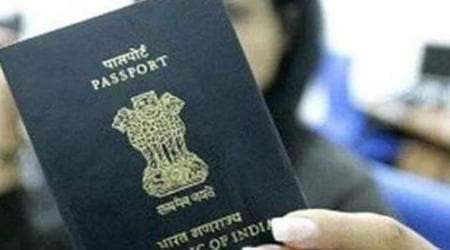 Sophisticated forensic vehicles to finally get trained staff. (Express/Pradip Das)
Sophisticated forensic vehicles to finally get trained staff. (Express/Pradip Das)
Nearly a year after the Maharashtra government brought in Mobile Forensic Vans (MFV) for its police force, the vehicles may finally get trained staff who can put them to better use. The MFVs are supposed to help the police carry out 17 types of tests at the scene of the crime, but so far, due to a lack of trained staff, they have only been used to lift fingerprints, which the police can do even without the vans.
A total of 45 MFVs — each costing Rs 27 lakh and together amounting to Rs 12.5 crore, were to be provided to police stations across the state. At least 10 of them were handed over to the police in August last year.
The proposal for the introduction of MFVs came in 2015, after the Mumbai Police faced flak over shoddy investigation into the seizure of 112 kg of ‘mephedrone (MD or meow meow)’ from the Lonavla residence of dismissed constable Dharamraj Kalokhe. Another 12 kg of the same substance was seized from his locker at the police station. However, the police were left red-faced after state Forensic Sciences Laboratories (FSL) found that the seized substance was Mono Sodium Glutamate (MSG), commonly known as ajinomoto.
Kalokhe was arrested and charged with sections of the Narcotic Drugs and Psychotropic Substances (NDPS) Act. He is currently on bail. An officer requesting anonymity said that the Mobile Forensic Vans (MFV) are armed with sophisticated equipment to collect samples of blood, DNA, ballistics, narcotics, cyber crime evidence and fingerprints, among others, from the crime scene. “Ideally, it requires a forensic expert to be able to make full use of these facilities,” he said.
Since the process of recruiting forensic experts is likely to take time, 100 police officers from the state, with a background in science, have been selected for training to use the vehicles, the officer said. “Of the 100 policemen, two each will be assigned to every forensic van. Training for an initial batch of 25 policemen has already begun at the Forensic Science Laboratory (FSL) and their training will get over on July 28,” he added.
Another officer said, “Posts for having a scientific officer from the FSL have already been created, but several procedures have to be followed before people are finally hired. It will take around a year before they can be hired. Since the vehicles have been lying with us for a while, we thought of training policemen to make use of them in the meantime,” he said.
Of the 45 vehicles, Mumbai police had been allotted two in August last year and told that three more would come soon. “The vehicles never came,” an officer said. The two vehicles given to the Mumbai police are currently stationed at the West region office at Bandra and East region office at Chembur, where they are being used.
The main reason behind allotment of these vehicles was to ensure that the evidence can be collected scientifically from the scene of crime before it can be contaminated by human error or rain. Currently, the police still have to wait for forensic experts to reach the scene of crime, as against the original plan of having the tests carried out immediately with the help of the van.
An officer who works with these vans said, “Currently, three people, the driver, a staff of the fingerprint bureau and a police photographer, are present in the van. Of the 17 tests, only the first test, the fingerprint test, is currently used. For the regions that do not have the vehicles, staff is directly sent to the crime scene.”
When contacted, a senior IPS officer said, “It is true that we did not have trained staff. However, by next month, we should be able to make use of the vehicles with trained policemen.”

